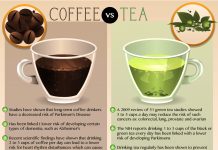Are you tired of having to give up your favorite dairy creamer because of your lactose intolerance? Well, fret no more! We’ve got the scoop on the latest and greatest dairy-free coffee creamers that are perfect for those who can’t tolerate lactose. These creamy alternatives are made with plant-based ingredients, like almond, coconut, or oat milk, and are designed to give you the same rich and smooth texture as traditional creamers. So, say goodbye to those stomachaches and say hello to a delicious cup of coffee that won’t leave you feeling bloated or uncomfortable. It’s time to indulge in your morning ritual without the worry of lactose getting in the way.
What is lactose intolerance?
Definition and background
Lactose intolerance is a common digestive disorder in which the body is unable to fully digest lactose, a sugar found in milk and dairy products. It occurs when the body does not produce enough lactase, the enzyme responsible for breaking down lactose. This condition affects a significant portion of the population, with an estimated 65% of people worldwide experiencing some degree of lactose intolerance.
Causes
Lactose intolerance is typically caused by a deficiency of lactase enzyme production in the small intestine. This deficiency can be either genetic or acquired. Genetic lactose intolerance occurs when individuals inherit a reduced ability to produce lactase from their parents. Acquired lactose intolerance can develop as a result of certain medical conditions, such as celiac disease or Crohn’s disease, or as a natural part of the aging process.
Symptoms
The symptoms of lactose intolerance can vary in severity, and individuals may experience different combinations of symptoms. The most common symptoms include bloating, gas, diarrhea, and abdominal pain or cramps. These symptoms typically occur within a few hours of consuming lactose-containing foods or beverages. It is important to note that lactose intolerance is different from a milk allergy, which is an immune response to the proteins in milk rather than the lactose sugar.
Understanding dairy-free coffee creamers
What are coffee creamers?
Coffee creamers are non-dairy products designed to be added to coffee or tea to enhance flavor and texture. They are typically used as alternatives to traditional dairy creamers, such as milk or half-and-half. Coffee creamers come in various forms, including liquid, powdered, and flavored options. They are often made with plant-based ingredients and are suitable for individuals with lactose intolerance or those following a vegan diet.
Why choose dairy-free coffee creamers?
Choosing dairy-free coffee creamers can provide several benefits, especially for individuals with lactose intolerance. These creamers offer a convenient and accessible way to enjoy creamy and flavorful coffee without the discomfort caused by lactose-containing dairy creamers. They also offer a wide range of flavor options, allowing individuals to customize their coffee experience. Additionally, dairy-free creamers are often lower in saturated fat and cholesterol compared to traditional dairy creamers, making them a healthier option for those looking to reduce their intake of animal products.
Common ingredients in dairy-free coffee creamers
Dairy-free coffee creamers are typically made with plant-based ingredients that mimic the creamy texture and taste of dairy products. Common ingredients used in dairy-free creamers include plant-based oils (such as coconut, soy, or almond oil), emulsifiers (such as soy lecithin), sweeteners (such as cane sugar or agave syrup), and natural flavors. Some creamers may also contain thickeners or stabilizers to improve texture and prevent separation. It is important to read the ingredient labels carefully, as some dairy-free creamers may still contain trace amounts of milk proteins, even if they are labeled as lactose-free.
Types of dairy-free coffee creamers
Soy-based creamers
Soy-based creamers are one of the most popular options for individuals seeking dairy-free alternatives. Made from soybeans, these creamers have a smooth and creamy texture that closely resembles traditional dairy creamers. They have a mild flavor that blends well with coffee, allowing the natural flavors of the coffee to shine through. Soy-based creamers are also a good source of plant-based protein, making them a nutritious choice for those looking to increase their protein intake.
Almond-based creamers
Almond-based creamers are another popular choice for individuals with lactose intolerance. Made from ground almonds, these creamers offer a subtle nutty flavor that complements coffee well. They have a slightly thinner consistency compared to soy-based creamers but still provide a creamy and smooth texture. Almond-based creamers are a good source of vitamin E and healthy fats, making them a nutritious option for those looking to incorporate more plant-based foods into their diet.
Coconut-based creamers
Coconut-based creamers, as the name suggests, are made from the extract of coconuts. These creamers have a rich and creamy texture that adds a tropical twist to your coffee. They often have a subtle coconut flavor that pairs well with both hot and cold beverages. Coconut-based creamers are a good source of medium-chain fatty acids, which are easily digestible and provide a quick source of energy. They can also be a good option for individuals following a ketogenic or low-carb diet.
Benefits of dairy-free coffee creamers
Suitable for lactose intolerant individuals
One of the primary benefits of dairy-free coffee creamers is that they are suitable for individuals with lactose intolerance. By using these creamers, lactose intolerant individuals can enjoy creamy and flavorful coffee without experiencing digestive discomfort. Dairy-free creamers provide a convenient and accessible solution for those who want to continue enjoying their favorite hot or cold beverages without worrying about the consequences of consuming lactose-containing dairy products.
Vegan-friendly option
Dairy-free coffee creamers are also a great choice for individuals following a vegan lifestyle. Since they are made from plant-based ingredients, they do not contain any animal products. This makes them a suitable option for those who choose to avoid dairy products for ethical reasons. Vegan-friendly creamers allow individuals to adhere to their dietary preferences while still enjoying a delicious cup of coffee.
Healthier alternative
Compared to traditional dairy creamers, dairy-free coffee creamers often offer a healthier alternative. Many dairy-free creamers are lower in saturated fat and cholesterol, making them a better choice for individuals looking to reduce their intake of these nutrients. Additionally, some dairy-free creamers are fortified with vitamins and minerals, such as calcium or vitamin D, to provide additional nutritional benefits. However, it is important to note that not all dairy-free creamers are created equal, and it is still essential to read the labels and choose creamers that align with your specific dietary needs and preferences.
Rich in flavor options
Dairy-free coffee creamers come in a wide variety of flavors, allowing individuals to customize their coffee experience to suit their taste preferences. From classic vanilla and caramel to unique options like hazelnut or pumpkin spice, there is a flavor for every coffee lover. These flavor options can add a touch of sweetness or a hint of indulgence to your coffee, making every sip a delight. Whether you prefer a subtle and smooth taste or a bold and robust flavor, dairy-free creamers offer a range of options to suit your mood and cravings.
Considerations when choosing dairy-free coffee creamers
Allergies and sensitivities
While dairy-free coffee creamers are generally safe for individuals with lactose intolerance, it is important to consider other potential allergies or sensitivities. Some creamers may contain ingredients that could trigger allergic reactions in certain individuals, such as soy, nuts, or coconut. It is crucial to read the ingredient labels carefully and avoid any creamers that contain allergens you are sensitive or allergic to.
Nutritional content
Although dairy-free coffee creamers can be a healthier alternative to traditional creamers, it is still essential to consider their nutritional content. Some creamers may be higher in calories or added sugars, which can impact your overall dietary intake. If you are watching your calorie or sugar intake, opt for creamers that are lower in these nutrients or choose unsweetened varieties. Additionally, some dairy-free creamers may be fortified with essential nutrients, such as calcium or vitamin D, which can be beneficial for individuals who may have limited access to these nutrients from other food sources.
Added sugars
Many dairy-free creamers contain added sugars to enhance their flavor. While a touch of sweetness can be enjoyable, it is important to consume added sugars in moderation. Excessive sugar intake can contribute to various health issues, such as obesity, diabetes, and dental problems. If you are concerned about your sugar intake, opt for unsweetened or lightly sweetened dairy-free creamers, or consider using natural sweeteners like stevia or maple syrup to customize the sweetness of your coffee.
Environmental impact
When choosing dairy-free coffee creamers, it is worth considering the environmental impact of the products you select. Some dairy-free creamers may use ingredients that have a higher carbon footprint compared to others. For example, almond-based creamers require a significant amount of water to produce, which can contribute to water scarcity in certain regions. Coconut-based creamers may also have a higher environmental impact due to the production and transportation of coconuts. Choosing creamers made from more sustainable ingredients, such as soy or oat, can help reduce your carbon footprint and contribute to a more environmentally friendly coffee routine.
Making your own dairy-free coffee creamer
Simple homemade recipes
If you prefer a more hands-on approach or want to save money, making your own dairy-free coffee creamer can be a fun and rewarding experience. There are numerous simple recipes available that allow you to customize the flavors and ingredients to your liking. One easy recipe involves blending together a base of your choice (such as soy milk, almond milk, or coconut milk) with a natural sweetener, such as dates or maple syrup, and a flavor extract, such as vanilla or almond. Experimenting with different combinations of ingredients can help you create a creamer that perfectly suits your taste preferences.
Customizing flavors
When making your own dairy-free coffee creamer, you have the freedom to customize the flavors to your liking. You can experiment with different extracts, spices, or even add-ins like cocoa powder or matcha powder to create unique and delicious combinations. The possibilities are endless, and by exploring different flavor profiles, you can elevate your coffee experience and discover new favorites. By making your own creamer, you can also control the sweetness and thickness of the mixture, ensuring it perfectly complements your coffee.
Popular brands of dairy-free coffee creamers
Brand A
Brand A offers a range of dairy-free coffee creamers made from high-quality plant-based ingredients. Their creamers come in various flavors, such as almond, coconut, or oat, providing a diverse selection to suit individual preferences. Brand A’s creamers are naturally sweetened with ingredients like cane sugar or agave syrup, and they are often fortified with essential nutrients like calcium or vitamin D. Their commitment to quality and taste has made them a favorite among lactose intolerant individuals and those seeking dairy-free alternatives.
Brand B
Brand B is known for its innovative and unique dairy-free coffee creamer options. They offer a wide range of plant-based creamers, including almond, soy, and cashew milk varieties. Brand B’s creamers are loved for their rich and creamy texture and their ability to seamlessly blend with coffee, creating a smooth and flavorful experience. They are dedicated to using high-quality ingredients and prioritize sustainability in their production practices. With a focus on both taste and environmental impact, Brand B has garnered a loyal following among consumers looking for a guilt-free creamer option.
Brand C
Brand C is a popular choice for individuals looking for dairy-free creamers that are free from common allergens. They offer a range of creamers made from alternative ingredients such as rice milk, hemp milk, or pea protein. Brand C’s creamers are carefully formulated to be free from top allergens like soy, nuts, and gluten, ensuring they can be enjoyed by a wide range of individuals with dietary restrictions or sensitivities. Despite their allergen-friendly focus, Brand C’s creamers still deliver on taste and texture, providing a creamy and flavorful addition to your coffee.
How to use dairy-free coffee creamers
Coffee brewing and mixing techniques
When using dairy-free coffee creamers, it is important to consider the brewing and mixing techniques to achieve the best result. Brewing your coffee using a method that suits your taste preferences, such as drip brewing, espresso, or French press, will ensure a strong foundation for your creamer. Once your coffee is brewed, carefully measure the desired amount of dairy-free creamer and gradually pour it into your coffee while stirring gently. This will help the creamer blend seamlessly with the coffee, creating a smooth and consistent flavor profile.
Adding flavor variations
One of the advantages of using dairy-free coffee creamers is the ability to add various flavor variations to your coffee. Customizing your coffee with different extracts, spices, or syrups can add depth and complexity to the flavor. For example, a dash of cinnamon or a drizzle of caramel syrup can transform a regular cup of coffee into a decadent treat. Experimenting with different combinations of flavors can help you find your personal favorite and make each cup of coffee a delightful experience.
Storage tips
To ensure the longevity of your dairy-free coffee creamer, it is important to store it properly. Most dairy-free creamers come in sealed containers, so it is essential to keep them refrigerated after opening. This will help maintain the freshness and prevent spoilage. It is also advisable to check the expiration date on the packaging and use the creamer before it expires for optimal taste and quality. If you are making your own dairy-free creamer at home, storing it in a glass jar or airtight container in the refrigerator will help preserve its flavor and texture.
FAQs about dairy-free coffee creamers
Are dairy-free creamers suitable for lactose intolerant individuals?
Yes, dairy-free coffee creamers are a suitable option for individuals with lactose intolerance. They are specifically designed to be lactose-free and provide a delicious and creamy alternative to dairy-based creamers. Dairy-free creamers are made from plant-based ingredients and do not contain lactose, allowing lactose intolerant individuals to enjoy their coffee without digestive discomfort.
Are dairy-free creamers vegan?
Yes, most dairy-free coffee creamers are vegan. They are made from plant-based ingredients and do not contain any animal products, making them suitable for individuals following a vegan lifestyle. However, it is always important to check the ingredient labels, as some creamers may contain additives or flavorings that are derived from animal sources.
Can dairy-free creamers be used in hot and cold beverages?
Yes, dairy-free creamers can be used in both hot and cold beverages. Whether you enjoy your coffee steaming hot or prefer a refreshing iced coffee, dairy-free creamers can be added to either preparation method. They are versatile and designed to withstand different temperatures without compromising their flavor or texture.
Are dairy-free creamers healthier than traditional creamers?
Dairy-free coffee creamers can be a healthier alternative to traditional creamers, but it ultimately depends on the specific product and its ingredients. Many dairy-free creamers are lower in saturated fat and cholesterol compared to dairy-based creamers, making them a better choice for those looking to reduce their intake of these nutrients. However, some dairy-free creamers may be higher in calories or added sugars, so it is important to read the nutrition labels and choose creamers that align with your individual dietary needs and preferences.































